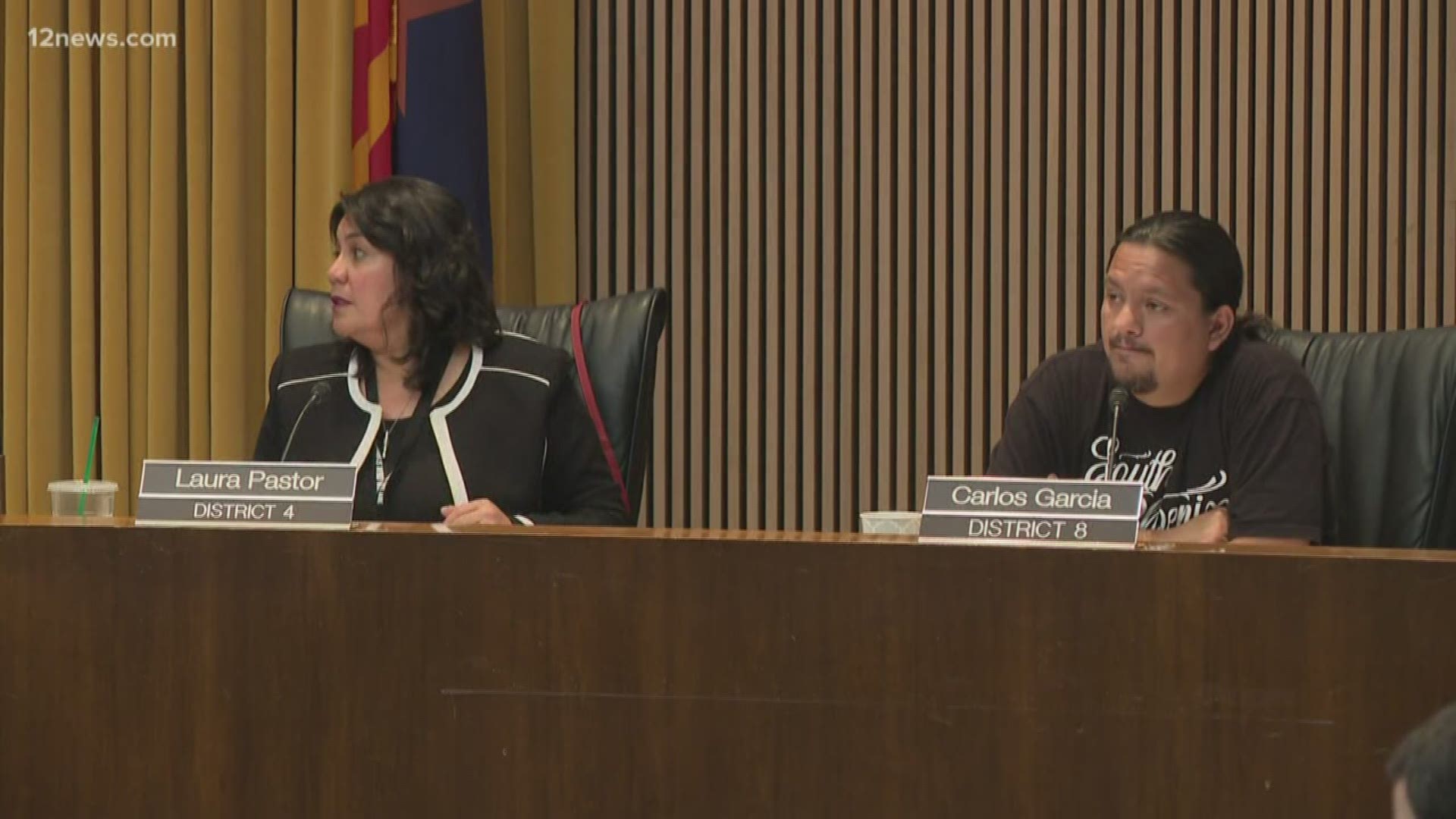PHOENIX —
For the first time in Phoenix, residents will have some oversight of the police who protect them.
The Phoenix City Council voted 5-4 Tuesday night to approve a civilian review board that was triggered in part by the record number of police shootings two years ago and an ugly confrontation with a family last year that led to an officer's firing.
The historic vote was felt most deeply by communities of color in Phoenix. Many of the dozens of commenters at the meeting said they had fought for more than a decade for civilian oversight of the police department.
During the public comment period, most of the speakers favored freshman Councilman Carlos Garcia’s plan, which gave residents investigative powers to probe alleged police misconduct.
A competing plan, backed by Mayor Kate Gallego, didn’t include investigative powers.
Both plans left the final say on officer discipline with the police chief.
The drama came after a 30-minute break in the fifth hour of the meeting: Gallego conceded her plan lacked the support to pass, and told the audience she would vote for Garcia’s plan.
The room, filled largely with immigration rights activists, erupted in cheers.
Garcia’s model for civilian review of officer misconduct would create two new agencies: a city-staffed Office of Accountability and Transparency and an appointed Community Review Board. Both would accept complaints about police.
The agencies would participate in police misconduct investigations by the department, provide independent reviews and make recommendations to the police chief. The chief would have the final say on discipline.
There was no price tag attached to Garcia’s plan. Gallego’s model called for 12 employees and an annual budget of $1.8 million.
The Phoenix Law Enforcement Association, the union for more than 2,000 officers, opposed both plans.
"We are extremely disappointed the Phoenix City Council chose to ignore the concerns of local law enforcement and establish new oversight entities that will continue the divisive narrative against our men and women in uniform," said Michael "Britt" London, President of the PLEA Board of Trustees. "Our existing process works, providing civilians with the opportunity to question officers in Discipline Review Boards and Use of Force Boards. We wish the council would have taken the opportunity to inform concerned constituents about the transparent process that already exists. Our organization will continue to monitor and provide input during the development of the Community Review Board and the Office of Accountability and Transparency. We will also assess our legal and regulatory options moving forward."
Councilman Sal DiCiccio, a diehard police supporter, complimented Garcia's political savvy in outmaneuvering the mayor, then ripped his citizen review plan.
"What Phoenix did today was pass the most radical, extremist, and anti-police plan in the entire country. It is going to put our citizens' lives in danger,” DiCiccio said.
Phoenix Police Chief Jeri Williams released a statement on Wednesday voicing her support for the decision.
"Our department values the collaborative relationship with the community we serve. We know our success hinges on police and the community working cohesively together. As chief, I am committed to devoting the resources of our department to work collaboratively with this new office," she said.
But Tuesday’s vote was just a first step. The heavy lifting comes next: putting the new police oversight structure into place.
The city said in a statement Wednesday that the Law Department will now develop an ordinance to order the creation of the Office of Transparency and Accountability and describe its operation.
The city will also allocate funding for the new agency as part of this year's budget process, which starts in March.

